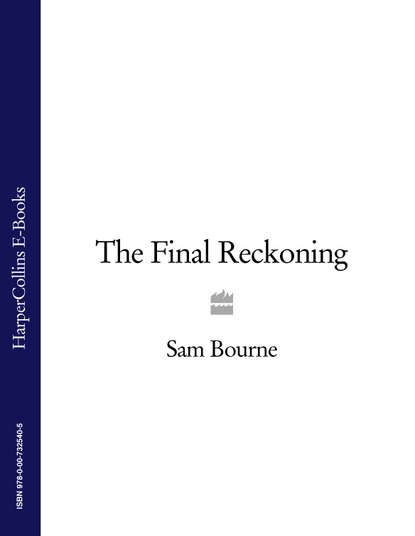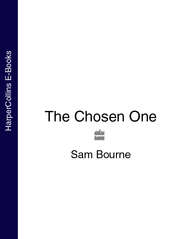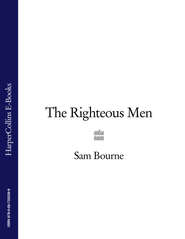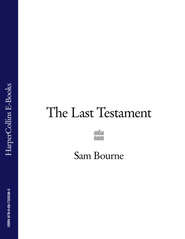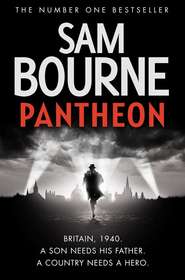По всем вопросам обращайтесь на: info@litportal.ru
(©) 2003-2024.
✖
The Final Reckoning
Настройки чтения
Размер шрифта
Высота строк
Поля
‘Are you brave enough to perform a task that carries with it a grave risk – most likely a mortal risk?’
‘Yes,’ I said, though of course I had no idea of such things. I was saying what I thought would save me.
‘I am going to give you a task on behalf of your people. You are to travel to Warsaw, to an address I will give you. You will give them this message. Are you ready?’
I nodded, though I was not ready.
‘You will go there and you will say these words. Do not change them, not even one word. This is the message: “Aunt Esther has returned and is at Megilla Street 7, apartment 4”.’
‘But I don't understand—’
‘It's better you don't understand. Better for you.’ He meant that if I were tortured I would have nothing to reveal. ‘Now repeat it back to me.’
‘Aunt Esther has returned and is at Megilla Street 7, apartment 4.’
‘Again.’
‘Aunt Esther has returned and is at Megilla Street 7, apartment 4.’
‘OK.’
The policeman came back into the room and led me away. Standing in the alley outside he told me the plan. He repeated every detail, so that I would not forget.
And so it happened that the next morning I left the ghetto with my work company as always. Except this time that same Jewish policeman was on duty at the gate, to ensure there was no trouble as I peeled away from the others.
A few seconds after I had crossed the bridge over the river, I did as I had been told. I removed the yellow star from my coat and immediately stepped onto the pavement. I was no longer a Jew from the ghetto but an Aryan in the city of Kaunas. I held my head high, just as I had been told.
I walked until I reached the railway station. It was early, there was still a mist in the air. Even so, there was a group of three or four guards standing outside, with one man in an SS uniform supervising them. I spoke in Lithuanian. ‘My name is Vitatis Olekas,’ I said, ‘and I am an orphan.’ I asked for permission to travel to Poland where I had family who might look after me.
As I dreaded, and exactly as Shimon, the Jewish policeman, had predicted, it was the SS officer who took charge. He circled me, assessing me, as if I were a specimen that had been placed before him. One of the Lithuanians asked where in Poland I was headed, but the SS man said nothing. He just kept walking around me, his shoes clicking. Finally, from behind, I felt a tug on the waist band of my trousers.
‘Runter!’ he said. Down.
I looked over my shoulder and saw that he was gesturing at my trousers. ‘He wants to see you,’ said another one of the Lithuanian men, a smirk on his face.
I looked puzzled, as Shimon had said I should, and then the officer barked, ‘Come on, come on.’ Hesitantly, I lowered my trousers and my underpants. The SS officer looked at my penis, eyed its foreskin, then waved me away.
So began my journey, armed with the right Aryan identity papers and a travel document for Warsaw. I can't remember if I pretended to be fifteen or older or younger, but the truth is that I was just a twelve-year-old boy travelling alone through Europe in wartime, showing that precious Kennkarte to Nazi border guards in Marijampolé and Suwalki and Bialystok, over and over again. The Kennkarte made everything possible. It was not a forgery, but the real thing. With that paper in my hand, I was an Aryan. No document was more precious.
And finally I pulled into Warsaw. It was midday and the place was bustling, but no one was going where I was going. My destination was the Warsaw ghetto. Most people then were desperate to break out of the ghetto: I was the only one who wanted to get in.
I dug into the hole I had made in the lining of my coat, the place where I had hidden my yellow star, and pinned it back on. I waited for a group of workers to return and I tagged along. Shimon had promised it would be like Kovno: workers only had to show papers when they went out, not when they came back in.
And so now I was inside streets as crammed and infested with disease as the ones I had left behind. There were corpses in the gutter here, too. But I found the house I was looking for and told them who I had a message for.
‘Tell us and we'll tell him,’ they said.
‘I can't do that,’ I said. ‘I have to give the message to him and to him alone.’ And so I waited.
It was only after the war that I discovered what had prompted my mission, why those three men in the candle-lit cellar sent me away that night. My mission was a response to something that had happened three days earlier.
Some Jews working outside the ghetto had seen a young girl, barely clothed, her eyes wild and staring. She was covered in dirt and smeared with blood; she could say nothing and her face twitched and shook like a mad woman's. They brought her back to the ghetto and once she had been dressed, and had managed to eat and drink a little, she eventually began to speak, though the words came slowly.
She had been one of those pushed to the right at Demokratu Square, along with my sisters. The selection had gone on all day, past nightfall, Rauca on the mound, smoking his cigarette or eating his sandwiches, all the while judging the column of people that shuffled before him, ignoring their cries and blocking out their pleas. Eventually there were ten thousand of them, pushed through a hole in the fence into an area known as the ‘small ghetto’. Some had felt relieved, concluding that this had been nothing more than an elaborate exercise in rehousing. Apparently, people began to argue over who would get which apartment; committees talked through the night, planning for their new lives.
But at dawn the next morning, they realized their mistake. Lithuanian militiamen burst in and began beating and pushing the Jews out of their new homes, herding them into a column and ordering them to march. They were to make the four-kilometre trek to the Ninth Fort, the old encampment built in Tsarist times and designed to keep the Germans out.
It was an uphill walk and it took hours; the aged and the sick falling by the wayside, sometimes helped to their deaths by the rifle-butt of one of the militiamen. The route was lined, from beginning to end, with local Lithuanians, curious to see these strange creatures emerging from the ghetto – just as they had been curious to see us all led inside.
The Nazis had a name for this route. They called it: Der Weg zur Himmelfahrt. The Way to the Heavenly Journey.
They did not arrive till noon and once they had there was no respite. The Lithuanian thugs were quick to grab any jewellery, pulling off earrings and bracelets, and then ordering the Jews to strip naked. Only then did they lead them to the pits.
These were vast craters dug into the earth. Some said they were one hundred metres long, three metres wide and perhaps two metres deep. Others said they were not as long, but twice as deep. Each one was surrounded on three sides by small mountains of earth, freshly dug. On the fourth side, there was a raised wooden platform. And it was here that the SS men stood with their guns.
Those who had survived the march now began to scream; they understood where this heavenly journey had led them. Some tried to escape but they were shot instantly. And so the killing began.
First the Nazis tossed the children into the pit; then the machine gunners, in position for precisely this purpose, opened fire. The women were lined up at the edge of the crater and shot there, in the back, so that they would fall in on top of the children. The men were last.
They killed them in batches of three hundred, with no guarantee that one batch was finished when work began on the next. They had to work fast. Besides, ammunition was rationed so that the Nazis could not afford more than one bullet to the back per victim. And most of the gunmen were drunk.
The result was that many Jews were not dead when they fell; they were buried alive. This was the fate, especially, of the children. But not only them. Those who saw it told of how the pit moved for three days, how it breathed.
This is the event they call the ‘great action’ of October 28 1941, when ten thousand Jews were driven out of the Kovno ghetto and put to death.
And this is how my sisters were killed.
The girl who had found her way back, shivering and starving, to the ghetto, was one of those who had been buried but not shot. She had passed out as she fell, but some time later she had awoken to the realization that there were corpses all around her, above and below her. She was wedged in by dead flesh, pressing on her so hard it made her choke.
Most of those buried alive were too weak to climb out of the pits, to use the limbs of the dead as rungs on a ladder. They gave up and suffocated under the bodies. Those who did manage to haul themselves out were usually spotted and shot, and this time with no mistakes made. But this girl, she was nervous and cautious. So she waited till the middle of the night, when the drunken chanting and singing of the Nazi gunmen and their Lithuanian comrades had faded into sleep. And so she had escaped, out of the Fort and back to the ghetto.
This was the story she told once she was clothed and fed and could speak. And this was the story which had reached the leaders of the Jewish underground in Kovno, those men in the cellar. Perhaps for the first time they understood what kind of threat they faced. And so they had decided they must spread the word to those who were also trying to fight back. Which was why they sent me to Warsaw.
And so, many years later, I came to understand the meaning of the message I had carried. I also understood why the men in the cellar did not explain it to me. It was not just because I might be tortured. It was also because they did not dare tell me what had happened to my sisters. Perhaps they thought I would have been so blinded by anger, so broken, that I would not have been able to carry out my mission.
But I did carry it out and I met the man I was meant to meet in Warsaw. I waited for him for three hours, but I met him. He was the leader of the underground in the Warsaw ghetto; he too was a young man who looked old.
When I said the words, ‘Aunt Esther has turned up again and is at Megilla Street 7, apartment 4’ he looked bemused. But then he asked for someone to bring him a book, a holy book rescued from the ruins of a synagogue in the ghetto. It was the Book of Esther, which Jews call the Megilla of Esther. It is the book we read for the festival of Purim, which commemorates a plot many hundreds of years ago to destroy the Jews.
This leader of the underground turned to chapter seven, verse four and then he understood everything. He read it out loud, as if it would help him think. ‘“For I and my people are sold to be exterminated, slain and lost; but if we were only being sold as slaves and maidservants, I would have stayed silent”.’
CHAPTER FIFTEEN (#ulink_04d0d0b8-dfa6-5b07-aead-29e147e534cb)
The more Tom read of Gerald Merton's life story, the more he found himself thinking about Rebecca. How ironic that a woman who seemed to bubble and throb with life, as if she were keeping the lid on an almost volcanic vitality, should have emerged from a world choking with death. She was even named for a grandmother who had hanged herself.
He tried to focus on his task, the job of work Henning Munchau had asked him to do. There was no denying it: the bind from which he was meant to extricate the UN was only getting tighter. They had not only killed a survivor of the Holocaust but apparently one of its heroes: the young boy who, in disguise, had travelled across occupied Europe carrying word of the Nazi plan to exterminate the Jews.
And Tom had accused him of being a suicide bomber. Thank God he had kept to himself his earlier intuition: that old man Merton, birthplace Kaunas, was some kind of Baltic war criminal who had sought post-war asylum in the UK. He had been as stupid as the German and Lithuanian guards young Matzkin had dodged again and again: he had seen the blue eyes and the uncircumcised penis of that corpse on the pathologist's slab and he had never once considered that he might have been looking at a Jew.





